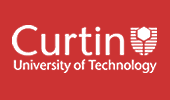
302009 v.4 Graduate Certificate in Cleaner ProductionGCertCleanerProd(Curtin) IntroductionCleaner production is a rapidly growing, internationally recognised discipline, which enables businesses and other organisations to contribute to sustainable development. Its goal is to avoid generating waste in production and consumption systems while minimising the use of energy, materials, water and other natural resources. Cleaner production improves the economic and environmental efficiency ('eco-efficiency') of production systems, thereby achieving reductions in production costs, energy consumption, pollution and health risks. This course will provide decision-makers in business, government and other organisations with insights and tools to enable them to contribute to the achievement of such outcomes. This introductory course is multidisciplinaryand incorporates both theoretical and experiential approaches to cleaner production, eco efficiency and related elements of the business agenda for sustainable development. Course Entry Requirements/PrerequisitesA bachelor degree in an appropriate field such as engineering, physical science, business, environmental science or health science. At least three years relevant work experience. Prospective students only intending to undertake one unit or choosing to not be assessed may be admitted without the above entrance requirements at the discretion of the Course Coordinator. Recognition of Prior LearningApplications for recognition of prior learning are assessed on an individual basis. Duration and AvailabilityThis fee-paying course is of one semester full-time study or equivalent part-time study. Course OrganisationThe program consists of four full coursework units. Each of the units are delivered using four contact periods (held on a three weekly basis) for three hours in the evening - followed by distance learning. Two of the units run concurrently in each semester, while all units are also available for distance learning, so that the course can be completed in six months. Assignments will focus on applying the course content to real life industrial case studies. Students not intending to complete all four units may exit the program with a certificate of completion for units undertaken. Additional Course ExpensesStudents may be expected to purchase a number of textbooks, readers and other vital study materials. In addition, students may also need to contribute some of the cost of consumables, which varies depending on the area of study.
Availability
The information displayed above refers to study periods and locations where the course is available for first time entry. Students are normally only offered or admitted to a course once. *The course itself may not be available either solely internally or externally but individual units may be offered in either or both of those modes. Prospective students should contact the Course Coordinator for further information. Click here for a printable version of this page |
 |
|||||||||||||||||||||||||||||||||||||||||||||||||||||||||||||||||||||||||||||||||||||||||||||||||||||||